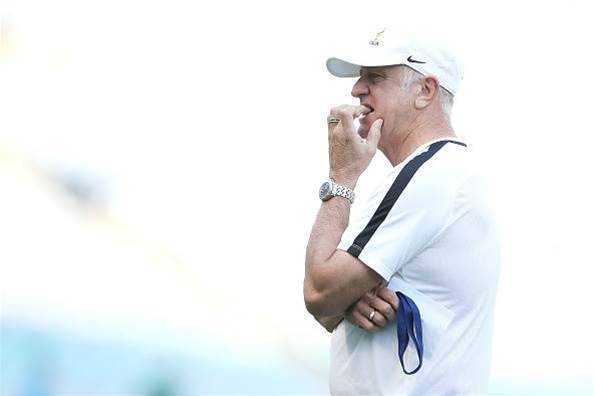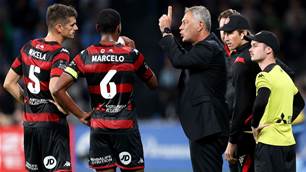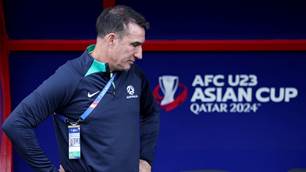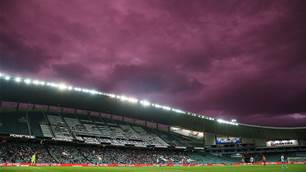Australia’s player development pipeline has become a “big black hole” that needs urgent addressing for the sake of the Socceroos.
That's the blunt warning coming from Socceroos coach Graham Arnold, who doubles as the national U-23s coach.
He is deeply concerned about the player development pool below the national team.
The former Socceroo striker says Australia’s national teams need more underage sides if they are to keep up with the rapidly growing AFC, particularly South-East Asia.
“The way Asian football is set up is not the same way as Australia’s national teams,” he told FTBL.
“Asian national teams go from 16s, 17s, 18s, 19s and 20s, and 22s that go into 23s.
“We go 17s, then nothing, 20s then nothing, then 23s.”

This is just one of a shopping list of issues for incoming FFA Technical Director Rob Sherman, who begins late next month following a nine-month search by Oxford St.
Sherman has said he’ll review the existing landscape, to ensure world best practice for “elite youth development including resourcing and the requirements for elite national teams”.
Arnold is hoping this results in greater emphasis on age national teams, and he pointed to the only player over the last five years who’d gone through the current national team pipeline structure and blossomed.
“That was Daniel Arzani. It’s a big black hole,” Arnold concluded.
“And that black hole needs to be filled. I’m not being negative I want to be positive and I want to help the kids.
“They need games and development and they need international football. But if we’re going to be in Asia, we need to get in line with Asia.”
As an example in Asia, the Japan FA have clear targets, vision and regular games for all age national teams.
JFA run the men’s national team the Samurai Blue, and underneath that an U22s national team, an U20s national team and national teams for U15s, U16s, U17s, and U18s.
JFA also run a national U12 tournament for junior club sides and national University tournaments.
See more of JFA’s 2015-2022 mission here http://www.jfa.jp/eng/
Arnold took on the Olyroos job this year, on top of his Socceroos commitments, because he desperately wants to help bring through the next generation of Australian national team players.
He says he cares about producing the next generation, despite the challenges currently in the national team set up. He helped pilot the Olyroos through a difficult first stage of qualifiers in Cambodia last month, going unbeaten after a 2-2 draw with the Korea Republic saw the Australians qualify for January’s final stage of Tokyo 2020 qualifiers.
The challenge was difficult but made even more arduous given there was no existing staff in place for the Olympic team ahead of March's campaign.
“My vision, my planning has always been long-term,” Arnold said.
“I sit back and look at the Socceroos going to the World Cup and winning games. And how does that happen?” he asked.
“It can’t just happen by luck. We can’t just hope to find someone in southern Italy with an Australian passport and maybe pluck him out of there.
“For me, it’s got to be everything underneath the Socceroos."

“The Socceroos are the icing. But underneath the ingredients to get to the icing needs to be put in place, for the good of these kids, for them to get the opportunity to play international football and club football.
“I don’t talk about the Socceroos, I talk about the growth of the Socceroos.
"Because without the growth of the Socceroos, there will be no Socceroos.
“The players have to come from somewhere," concluded Arnold.
Related Articles

Six in the mix: Wanderers' short-list includes Arnie's Dutch pick

Campaign of pain: FA's Olyroos inquest will pile heat on Vidmar













